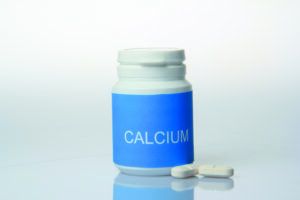Mental Stress Associated with Higher Risk for Cognitive Decline
Perceived stress (defined as “a consequence of events or demands that exceed an individual’s professed ability to cope”) is associated with numerous negative health effects, including risk of cardiovascular disease and stroke, sleep problems, indicators of accelerated aging, and weakening of the immune system. It may also be linked to cognitive impairment and Alzheimer’s disease.
A study assessed the level of perceived stress of nearly 25,000 participants aged 45 and older at baseline and at one follow-up visit. Cognitive function was assessed at the start of the study and annually throughout the study period. The researchers found an association between higher levels of perceived stress and the development of cognitive impairment. Higher levels of perceived stress were associated with about 40% higher risk of poor cognitive function.
The authors suggest it may be worthwhile for health-care providers to screen for stress among high-risk older adults at primary care visits.

A new analysis of multiple studies does not support a possible link between calcium supplements and higher risk for cardiovascular disease.
Analysis of Multiple Studies Shows No Association between Calcium Supplements and Increased CVD Risk
Some (but not all) large randomized controlled trials have suggested taking calcium supplements may increase risk of cardiovascular disease. Although the U.S. Preventative Services Taks Force recently concluded there was little evidence for health benefits of calcium and/or vitamin D supplements in most adults, many people continue to take these, making it important to assess any risks.
An analysis of 11 randomized placebo-controlled trials of calcium supplements did not find any significant connection between calcium supplements and increased risk for heart attack, coronary heart disease (CHD), stroke, or death from CHD or any other cause. Six of the studies looked at calcium plus vitamin D. This combination also did not increase risk of heart attack, CHD, stroke, or death.
If your health care provider recommends calcium supplements or calcium plus vitamin D to you, this study supports the cardiovascular safety of doing so.
Nitrates and Nitrites in Processed Meats Associated With Higher Diastolic Blood Pressure
Intake of processed meats (like deli meats, sausage, ham, hot dogs, and

It has already been established that processed meats (like the deli meats shown above) increase risk of colorectal cancer. Now a study has linked intake of processed meats to higher blood pressure.
bacon) has consistently been associated with higher risk of colorectal cancer, leading the World Health Organization to conclude that processed meats are a “class 1” carcinogen (like smoking). Processed meats are also high in sodium—on average, 400 percent higher than unprocessed meats—and sodium intake increases blood pressure and stroke risk. Now, new research suggests other potential harms.
Among 1,774 adults who consumed processed meat, researchers compared their estimated dietary nitrite and nitrate intake from processed meat to their blood pressure (systolic and diastolic). Participants were divided into three groups of dietary nitrite intake (essentially high, medium, and low) and also by level of total sodium intake (less than 1500; 1500 to 2300; greater than or equal to 2300 grams a day).
Diastolic blood pressure (the second number in a blood pressure reading) was higher with higher sodium intake— but it also was higher with higher dietary nitrite intake. There were no significant associations with systolic blood pressure (the first number).
Given the intercorrelation between dietary nitrites and sodium, these results could relate to unmeasured effects of sodium alone. But, avoiding nitrites may be sensible for many reasons.
Note: Processed meats made with fermented sources of nitrates and nitrites (such as celery powder) currently say “uncured” or “no nitrate or nitrite added” on the label. But, these products contain nitrates and nitrites at levels similar to those made with synthetic agents like sodium nitrite. The USDA is considering prohibiting these statements. As of this writing, the new ruling has not yet gone into effect. It is best for your health to avoid or limit any processed meat products.
























